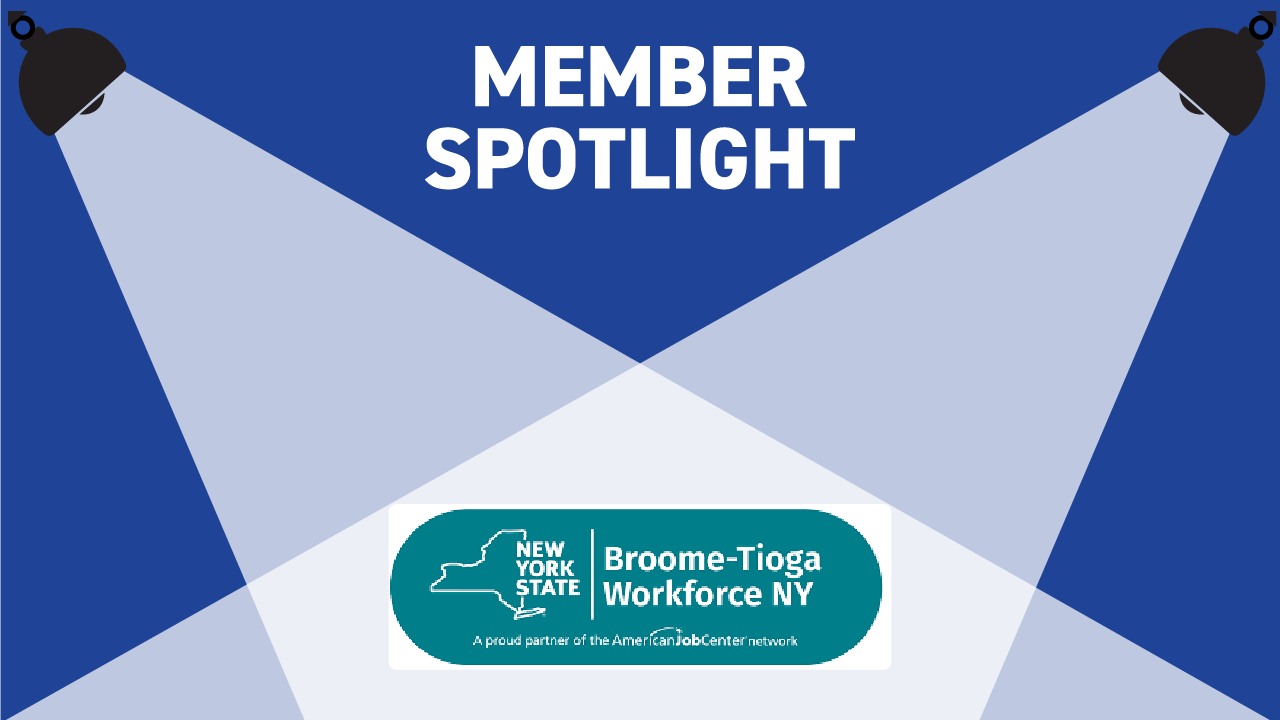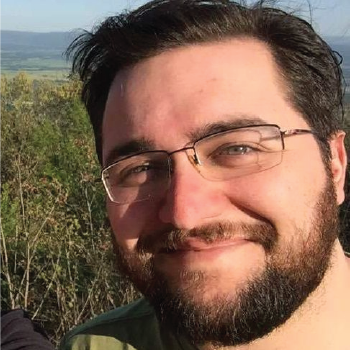Spotlight on Steve Ordoñez of the Broome-Tioga Workforce Center
Oct 24, 2022
Our Spotlight series is an opportunity to highlight the impact NYATEP members are making on New York's workforce system. If you would like to be considered for a feature, please contact Ebony Hattoh at ehattoh@nyatep.org to learn more!

Steve Ordoñez is a Senior Employment & Training Assistant at the Broome-Tioga Workforce Center in Johnson City NY. In March 2020, the center to the aging Oakdale Mall which is being revitalized into a mixed-use space because the location is more central to the area and provides better access. The pandemic added a number of setbacks for the center, mainly a community deficit in digital access and digital literacy which was most crucial, during the recent Covid crisis. Steve says the center was able to get back up and running as usual in no time but that it has been a slow process of making the public aware that the center has moved. Activities have increased at the center, especially by jobseekers looking to re-tool and reskill to be better employed.
Steve wasn't looking to re-tool when he started in workforce development but it has been one of the best career moves he’s made. He says, ”it wasn't until I became a career counselor that I realized my own career path.” Since coming to work for the center, Steve has been able to discover a passion for helping others that he knew was there but that he had not explored.
While not originally from the Broome County area, Steve has spent the last 12 years working and getting to know the people and all of the possibilities it has to offer. As the Broome-Tioga Workforce Center team evolves toward a more holistic approach to service, he enjoys an increased focus on counseling clients. Steve deeply understands that placing individuals in a seat with an employer does benefit anyone. Fostering a relationship, and getting to know the jobseeker's weaknesses and strengths helps him to guide them toward a career. Two major tenets in his office are advocacy and mindfulness. Over the years he has come to realize that his place in workforce development is in what he described as “broadening the idea of work readiness.” To him, that means meeting people where they are and providing crucial resources like aid for transportation, support for childcare, and assistance with obtaining other safety nets.
Steve comes from a home where his mother worked to support four children on her income and says that he does not give her enough credit for facing adversity while he was growing up on Long Island. He is able to look back at his experiences and reflect on when he left school early and faced his own challenges. He acknowledges that young people have been out there gaining useful experience and he helps them leverage those learnings. He connects with his clients by comparing how his previous roles led him to where he is today. Even now, Steve is back in school to overcome what he calls the “concrete ceiling” that limits his ability to move forward in his own career. His lack of an Associate's degree, which he is working towards now, has kept him immobile knowing there is more he can offer.
Steve uses this motivation to dig deeper with his clients as he weaves experiences with qualifications to fill some positions. He has been successful in gaining the support of his director to work on passion projects and states that he and his colleagues Katie and Zach have gone full throttle as well. They have identified with and are servicing reentering citizens, local Broome County Veterans and Steves's own passion, New Americans. As a second-generation American of El Salvadoran heritage, Steve says that as an adult he has been able to engage and explore his heritage in a new way through his work and that has been the most fulfilling. Steve says he is able to discover more about being a “Salvie” and what that means to him. He is proud to come from the vibrant and varied Central American nation by way of his father and hopes to travel there soon to visit with newly found family members. However, in the meantime, he has been able to closely identify with English Language Learners, as well as other New Americans at his office and help guide people with International credentials to find a job match in the States. Binghamton has a robust and long-standing Refugee and Asylum Seekers settlement program that is used to seeing Kurdish, Ukrainian, Haitian, and African settlements. But Steve says he is working with far more Ukrainian and Afghan clients than before due to recent events. It makes him happy that he has the time to focus on trauma and healing and states that at times he has clients who see a career change as self-care. It is the reports of successful job placements that encourage Steve to seek advanced degrees and credentials such as Skilling America of which he is a proud alum.

